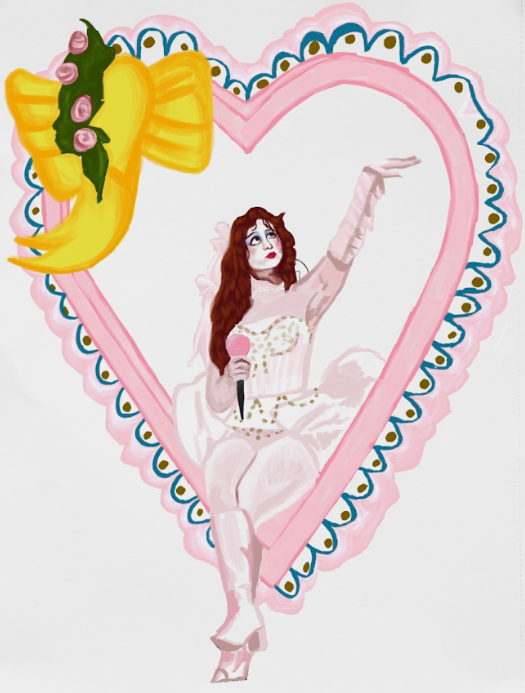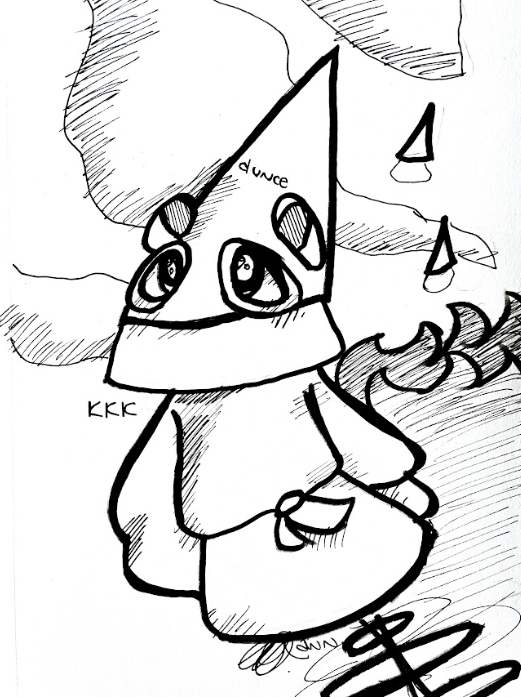Friends, readers, Roadrunners, lend me your ears (eyes?). Something is rotten in the states of America. The 2016 presidential election has been more underwhelming than “Suicide Squad” but, unfortunately, cluttered with as many cartoonish, cringe-worthy players and tiresome representations of women and minorities.
The result has been a resurgence of media references to William Shakespeare’s politically infused plays; analogies that attempt to answer questions and demystify the mess we seem to be immersed in. When faced with tragedy, we oftentimes turn to literature as a source of escape or explanation. The Clinton/Trump election has brought us back to the Bard.
As this week brings the first presidential debate of the season, let us cross our fingers this election can qualify as a Comedy rather than Tragedy.
Alas, as theater critic Charles McNulty writes, “The comedies, which I naturally turned to first, failed to supply a figure who combines Trump’s peculiar combination of arrogance and unpreparedness, pugilistic vehemence and showman’s pandering. The histories provide the richest trove of Shakespeare’s political thought, but there’s no . . . equivalent to the Donald.” Which leaves us in the realm of tragic drama and everything going to utter shite before the curtain falls. With Trump and Clinton tied at 46 percent among all registered voters (according to a new Washington Post-ABC News poll), it sometimes feels like all we plebeians can do is simply… watch.
“Julius Caesar” best addresses the quagmire that has been Trump’s ascent into the political arena. The Rome of the play could be today’s Washington D.C., a metropolitan that feels the ever-increasing tension between patricians and plebeians rumbling outside alabaster columns. With rising distrust of the “elite” and the “status quo,” frustration and concern have given way to zeal and paranoia. Mob mentality incites fist fights at Trump rallies and refuses compromise from the Bernie-or-Bust camp. When we don’t know what to believe, we’ll believe anything, and that leads to manipulation of the masses.
In “Julius Caesar,” the scene that makes the most compelling case as an allegory for today is just after Caesar’s assassination by the hand of BFFL, Brutus. The people know what’s up, and the people are pissed. Stoic Brutus provides a strong, succinct explanation behind his actions. It’s all for democracy! Acceptance of this explanation lasts about as long as T. Swift and Loki’s love life.
Enter, Marc Antony. A faux eulogy serves as a rhetorical dagger, and soon the people are driven into a chaotic frenzy away from Brutus by their own willingness to follow anybody blindly. Antony tells the people he’s “no orator, as Brutus is,” just “a plain blunt man.” He’s the kind of guy one might want to have a beer with. Because that’s what matters most, right?
When Trump is able to get away with things like saying, “I love the poorly educated” and outright lie that Clinton originated the birther controversy, we know we have a Marc Antony. What’s harder to pinpoint is when the frenzy began, and how we allowed ourselves to create a tragedy even Shakespeare would wince at.
In 1992, NBC reporter Katie Couric asked then-First Lady Hillary Clinton to comment on comparisons made between her and Lady Macbeth. Clinton’s image has been forever plagued by the notion that an ambitious, intelligent woman who could very well go toe-to-toe with a man, is not to be trusted. Because she’s probably a murderous wench. But we’ll save that analysis as a post-debate follow-up for next week’s column.
We’re fortunate to have a Shakespeare play being performed at UTSA this week if one needs an interesting frame of reference for our political doldrums. “Richard III” will be performed by Actors from the London Stage “in the Recital Hall on Wednesday, Friday, and Saturday (Sept. 28, 30, and October 1), all at 7:30,” according to the UTSA English department. With that said, gird your loins for more presidential debate coverage and remember, “Woe to that land that’s govern’d by a child!”
For some election-related Shakespeare humor, be sure to read The New Yorker’s “Donald Trump Performs Shakespeare’s Soliloquies” by Aryeh Cohen-Wade. “And on and on with the whips and the scorns of time and the contumely and the fardels and the blah blah blah.”






